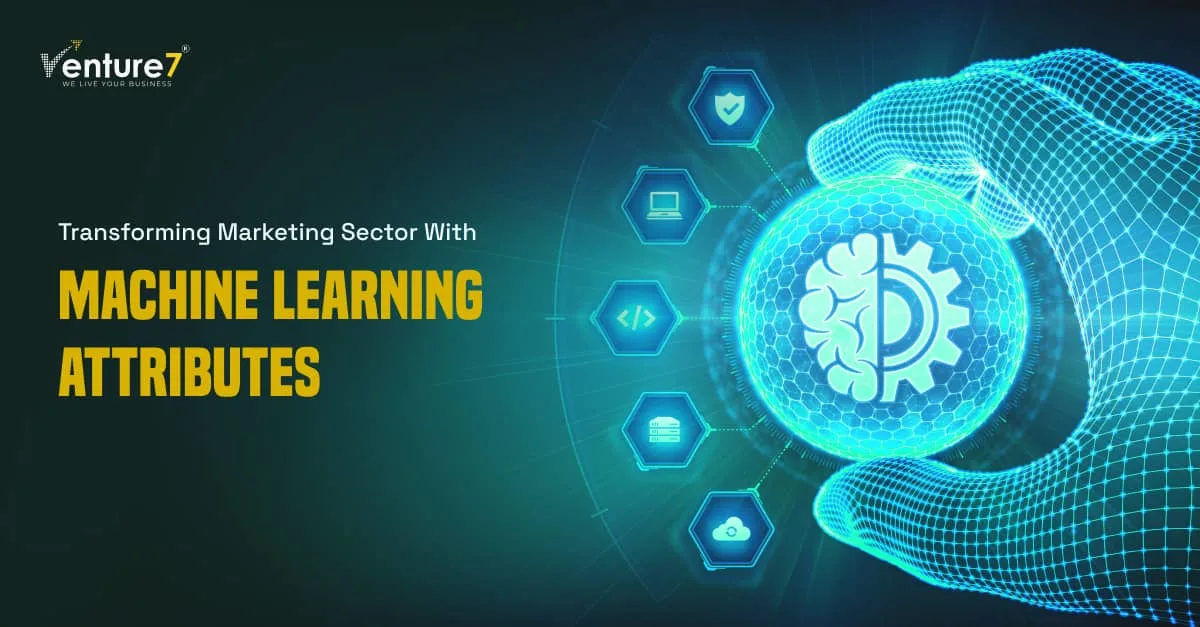The marketing sector is continuously evolving with constant advancement in technologies that are highly being implemented to enhance marketing campaigns and optimize customer experience. The growing competitive business environment has made it necessary for marketers to explore diverse technologies to bring efficiency in operations and maintain a competitive edge in the industry.
Technologies such as artificial intelligence, machine learning, etc. are transforming the operations of the marketing sector and are providing various opportunities to enhance the approaches and make the process effective. Industries are utilizing machine learning attributes to simplify various activities by creating patterns and analyzing them to deliver informed decisions. Machine learning is a subset of artificial intelligence that provides computer systems the ability to learn and perform operations without being explicitly instructed.
ML for Lead Generation Strategy
Machine learning has benefited the marketing departments in several ways. This technology has enabled marketers to improve the accuracy of lead scoring with the help of algorithms and patterns. Efficient lead scoring helps organizations to identify prospective clients based on how will they contribute to the company’s growth. It has helped organizations to prioritize their lead generation strategies by monitoring customer behaviour, for, e.g., websites visited, clicks, downloads, etc. and qualify those prospects that help businesses to create accurate profiles of customers, thereby enhancing their marketing strategies and tactics.
This technology has enabled industries to deliver dynamic pricing strategies for the products and services they offer. It has allowed them to utilize regression techniques to predict future trends and market conditions and segment prices accordingly. The regression tools can also be used to forecast sales and optimize the pricing structure based on market conditions.
Machine learning can deliver personalized customer experiences and improve the ways of targeting ads across platforms. This technology works with diverse algorithms that can predict the type of content relevant to a particular user. It has made it possible for the marketing management team to run a targeted and personalized ad to enhance visitor engagement.
Helping E-Commerce Brands
Machine learning has helped brands to recognize their products in the form of images and videos with the use of advanced algorithms. These algorithms can scan through user-generated content on diverse social media platforms and track information about competing brands. This technology has helped industries to discover various aspects of the customers to segment them into diverse categories. This has enabled organizations to personalize and target a particular set of customers and enhance their engagement with the organization. The customers can be segmented into different clusters to enhance the experience and ensure the conversion of prospective customers.
This technology has allowed brands to create and identify new revenue streams by analyzing data that is gathered from various sources and gathering important insights, which, in turn, has enabled them to tailor their services as per the needs and preferences of customers. It has allowed the industries to explore multiple revenue streams in new areas of the market.
The marketing strategies can now be tailored for the niche groups of the industries or their customers with the use of machine learning software. It has also helped them to develop a greater number of products and services by analyzing a huge amount of customer data, thereby enhancing their market reach.
The content has drastically optimized with the use of artificial intelligence and machine learning attributes. Machine learning has enabled marketers to channelize their marketing campaigns based on the feedback that they receive. Feedback can be used to deliver targeted content by collaborating with machines to optimize their content creation strategies and services. This technology works intending to analyze problems and processes and finding various ways to optimize them. It has allowed marketing departments to explore various options and analyze the results to determine the accurate options for carrying out operations in an efficient manner.
Machine learning can identify trends and actions in real-time and respond accordingly without the need for any human intervention. It eliminates marketing waste by reducing guesswork and channelizing strategies by automating the real-time analysis of data, thereby reaching customers with their best product and services to enhance engagement with the organization.
Chatbot with integrated machine learning attributes has enabled timely response to customers’ queries, thereby improving customer services. It has enhanced interactions with customers by offering assistance and advice soon after a visitor arrives on the website. Machine learning allows the chatbot to continuously learn from interaction with customers, collect relevant data, and analyze it to provide accurate responses every time a customer raises a query.
Machine learning has enabled industries to create a more human experience by crafting the experience by carefully analyzing their needs and interests. This has helped them to build customer loyalty by enhancing customer retention and attracting a greater number of customers. The content has become more optimized with advanced data insights that have enabled them to reframe their marketing strategies and cater to the needs of the customers. Analyzing customer data with artificial intelligence and machine learning capabilities has helped marketers to predict customer experience on a larger scale. These insights have enabled marketers to run targeted promotions that help them to generate greater returns on investments. The advanced prediction models have allowed industries to enhance their product recommendation engines and suggest the right products to individual customers.
This technology can optimize the in-store experience by analyzing detailed browsing and purchase history, recent search behaviour and other such details. Machine learning has optimized cross-sell and upsell activities by ensuring data-based product recommendations to reach the right customer on the right channel and at the right time. The marketing department has the opportunity to identify the right engagement channel with the use of machine learning attributes that helps them to engage key user segments. This technology has allowed marketers to predict the segment of customers that will be receptive to an engagement campaign and strategize the marketing campaign accordingly.
There are diverse industries that have already started integrating machine learning attributes to frame their marketing campaigns efficiently. This technology is rapidly becoming an integral aspect of the marketing department for the number of benefits that it provides.





